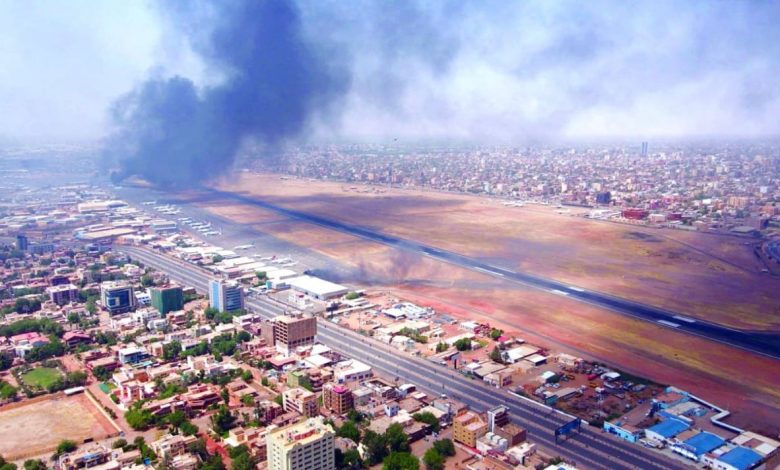Reports
War in Sudan: Heavy Losses

Sudan Events – Agencies
The ongoing war in Sudan has often been overshadowed by more prominent conflicts across various continents. However, the lack of media and geopolitical attention toward this 18-month-long conflict has not diminished the devastating toll it has taken on human lives.
A Bloody Conflict
Since the outbreak of fighting in April 2023 between the Sudanese Armed Forces and the Rapid Support Forces, which were once part of a joint military government, the country has witnessed the displacement of over 14 million people and a deep geographical and ideological divide.
Though we may never know the exact number of casualties, the Sudanese conflict is among the deadliest in the world today. As researchers in public health, conflict studies, and human rights, and as Sudanese-American health professionals, we are keenly aware of the challenges in estimating mortality rates in wars, due to various practical and political reasons. Yet, such estimates are crucial: they help us understand and compare conflicts, direct humanitarian aid to affected populations, initiate investigations into war crimes, document the conflict, and press states and armed groups to intervene or change their stances.
Counting the Dead
A deep humanitarian crisis is unfolding in Sudan, characterized by ethnic cleansing, mass displacement, food shortages, disease outbreaks, and flooding in the northern states.
Counting the dead in such a conflict means tallying not only those killed by direct violence — which is difficult to monitor in real-time — but also those who died from conflict-related factors, such as lack of emergency care, disruption of vaccination programs, and shortages of food and medicine. Estimating these types of indirect deaths is a challenge in itself.
In his testimony before Congress, U.S. Special Envoy to Sudan Tom Perriello acknowledged the challenges in making estimates, citing a death toll ranging from 15,000 to 150,000 — a wide range partially due to the difficulty in determining indirect fatalities.
The Armed Conflict Location & Event Data Project (ACLED), a nonprofit focused on collecting conflict data, recorded an average of over 1,200 direct conflict-related deaths per month in Sudan, totaling around 19,000 deaths in the first 15 months of the conflict. This estimate is similar to the 20,000 deaths reported by the Sudanese Doctors Union.
ACLED derives its death toll estimates from traditional media, reports from international NGOs, local observers, and new media sources like verified Telegram and WhatsApp accounts. Meanwhile, the Sudanese Doctors Union provides on-the-ground estimates of fatalities.
Context of the Sudanese Conflict
Although these numbers reflect a significant loss of life, they do not fully convey the human cost of the conflict.
Sudan had an already fragile and underfunded health system before the fighting erupted. Compared to ongoing conflicts in places like Gaza and Ukraine, Sudan’s health situation was more precarious, with higher child mortality rates and lower life expectancy.
Since the start of the war, there have been continuous reports of mass killings, enforced disappearances, sexual violence, and deliberate blockades of food and medicine supplies, among other abuses against civilians.
The destruction of civilian infrastructure and disruption of aid mechanisms have prevented medicine, food, clean water, and vaccinations from reaching those in need.
Healthcare workers and medical facilities have been targeted, not only in high-risk areas like Darfur but across the country, where nearly 80% of medical facilities have been disrupted, and at least 58 doctors have been killed.
Limitations of the Estimates
The displacement of over 14 million people within Sudan has complicated the process of estimating the death toll, as the continuous movement of populations makes it challenging to establish reliable baselines.
During conflicts, there is often a shortage of officially collected and published information.
Yet, as scientists working at the intersection of public health and human rights, we believe that this work, however imperfect, is essential for documenting the conflict — and for preventing future conflicts. While numerous global conflicts currently demand our urgent attention, the Sudanese conflict should not be overlooked amid this mix.
Source: “Al-Difaa”



